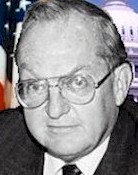| News from August 21-25, 2002 |
 He continued that
"Currently, the easiest way to steal the latest musical or cinematic
offering is through peer to peer technology, which essentially allows computer
users to swap music and movie files. Millions upon millions of illegal downloads
occur each day at the expense of songwriters, authors, graphic artists,
photographers and software developers in North Carolina and the rest of our
nation."
He continued that
"Currently, the easiest way to steal the latest musical or cinematic
offering is through peer to peer technology, which essentially allows computer
users to swap music and movie files. Millions upon millions of illegal downloads
occur each day at the expense of songwriters, authors, graphic artists,
photographers and software developers in North Carolina and the rest of our
nation."